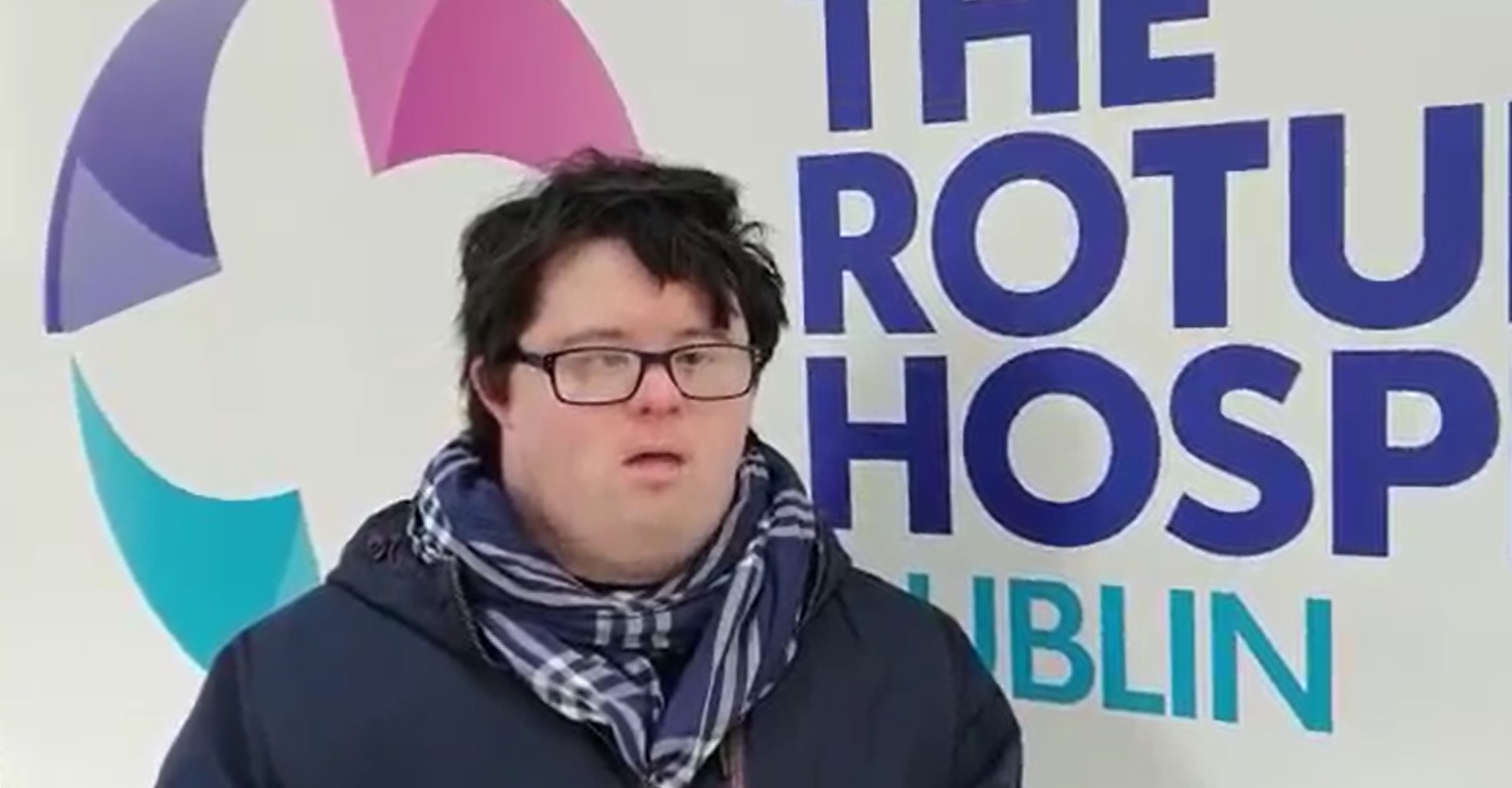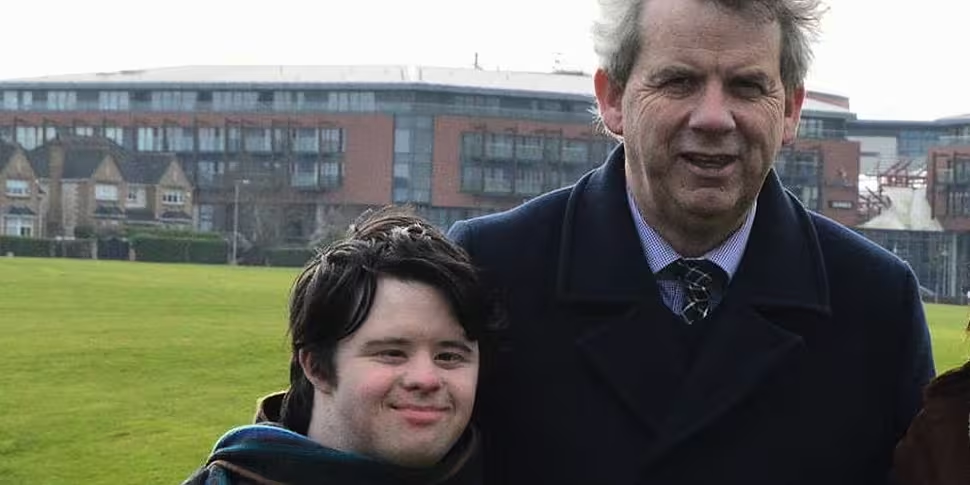The father of a man with Down Syndrome has appealed to hospitals to give potencial parents more support following a diagnosis.
Michael O'Dowd's son, Conor, has delivered a letter to Professor Fergal Malone - Master of Dublin's Rotunda Hospital - in response to comments that 95% of parents diagnosed with a Down Syndrome baby there choose an abortion.
In an interview with The Irish Times last week, Prof Malone said: "The 95% who choose to travel do reach that decision themselves.
"We very much do not advocate for termination. The reality is that the vast majority choose to terminate.
"I don’t have a view on whether that is the right thing. We don't advocate for it, that is just the lived experience," he added.
 Conor O'Dowd travelled to the Rotunda Hospital to deliver his letter. Picture by: Facebook/ Michael O'Dowd Aontú Representative Louth
Conor O'Dowd travelled to the Rotunda Hospital to deliver his letter. Picture by: Facebook/ Michael O'Dowd Aontú Representative LouthMichael, a former Mayor of Drogheda and Aontú representative, told Newstalk Breakfast his son was upset by the statistic.
"Conor is very defensive about the fact, and very proud of the fact, that he has Down Syndrome," he said.
"He doesn't see anything wrong with it, and indeed there is nothing wrong with it.
"He was quite upset by the comments by Prof Malone that 95% of parents choose abortion; or as he put it in his letter: I don’t understand why people take away babies with Down Syndrome – it's very unfair and very wrong is what he said.
"He felt compelled, and I certainly supported him in delivering a letter to Prof Malone at the Rotunda Hospital."
'Too medically orientated'
Mr O'Dowd said prospective parents should be given clearer language.
"In terms of what Conor wanted, and certainly what I would want, is to tell the parents the full truth in relation to having a child with Down Syndrome," he said.
"There was an Irish study done just last year which said that the information given to parents, when a diagnosis was given, was too medically orientated.
"They gave all the facts of the problems that a child may have, without giving them the support - or information in relation to where they can find support.
"I think that's really important, and it goes to the heart, I think, of the attitude of certain obstetricians and certain maternity hospitals when it comes to a diagnosis like that."
He said we should move to a more social model.
"I believe that there is a medical model [which] is used in these hospitals, where people are told about the problems that they will have - rather than a social model, which shows how they can be integrated into society.
"A young person with Down Syndrome can live a long, healthy, fulfilling life.
"Just one request to hospitals that I would make, and Conor would make, and that is... potential parents would be given the full information," he added.









